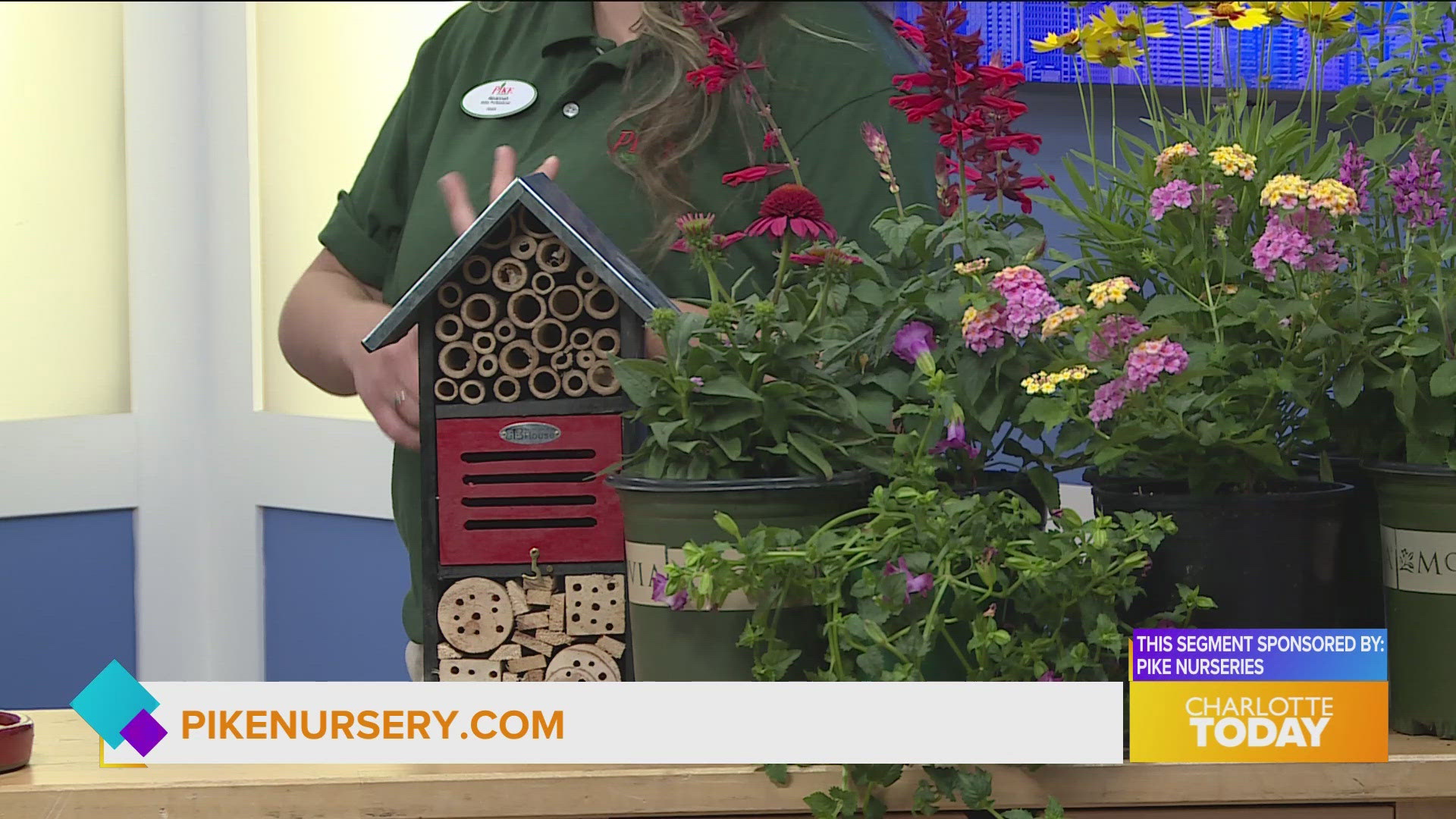CHARLOTTE, N.C. — This article involves commercial content.
The products and services featured appear as paid advertising.
This week is National Pollinator Week....a campaign to raise awareness about the importance of these beneficial creatures. Pollinator Week is an annual celebration in support of pollinator health; It is a time to raise awareness for pollinators and spread the word about what we can do to protect them. Pollinators are beautiful they range from birds, bees, butterflies, bats, beetles, moths, wasp and flies. Here with more is Savannah Spaziani from Pike Nursery. Here at Pike Nursey we want to promote the survival and encourage the health of all these species by doing our part to help them exist. “We love seeing all the birds and butterflies in our greenhouses this time of year!” says Spaziani. She adds “ Pollinators are attracted by the smells and colors of your yard and all pollinators need to three things to survive: Food , Water, and Shelter.
Food
Plants rich in nectar and pollen like Bee balm, Salvia, Butterfly Bush and Rudbeckia are a great source of food. Plan your garden so you have blooms from early spring to late fall to provide as much food as possible. Include native plants in your garden, which pollinators will be most familiar with like Yarrow, Baptisia, and Coneflowers. If you include host plants, butterflies will lay their eggs on host plants like Parsley and Asclepias. You can add supplemental food sources like, hummingbird and butterfly feeders and nectar.
Water
A bird bath is a good place to start, but most pollinators need a shallow water source. Saucer with pebbles or sand and water is a good place to start because it gives butterflies and other pollinators the ability to land without getting wings wet and drink. It’s vitally important to keep the water source clean. Stagnant water attracts mosquitos which are NOT the bugs you want.
Shelter
Many pollinators nest in trees, shrubs, and ornamental grasses. Add these places of shelter to your landscape. Leave a fallen branch and or a bare patch of ground at the back of your property for native bees. You can also add a bug hotel to give pollinators shelter from storms and predators.
Don’t forget these creature help our crops and agricultural needs, so let’s do our part by providing them with the food, water and the shelter they need to survive. For more information visit PikeNursery.com.

